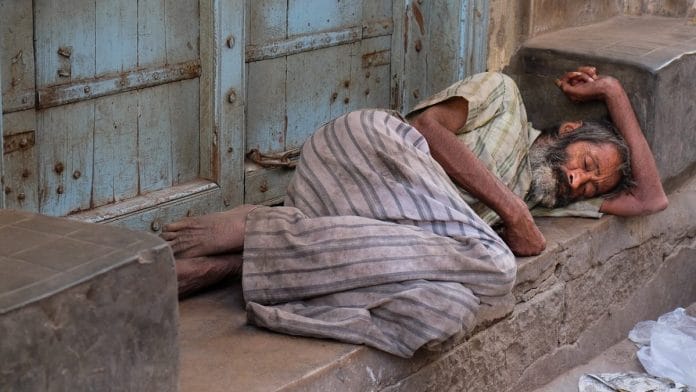The Indian national movement was a beacon of hope for the entire southern hemisphere and progressive forces around the world. The grim and shattered moment in history after World War II was transformed into an era of optimism and dreams, as one colonised country after the other gained Independence, with India being an inspiring force. But as India enters into its 75th year of Independence, is the country still living up to the world for a free, equal, and just society?
New India was a unique and audacious experiment of democracy with a universal adult franchise in an extremely poor country with massive developmental challenges like illiteracy, poor health, and deeply patriarchal and caste-ridden society, scarred by massive communal violence of partition. It embodied a dream.
At the heart of this Indian dream was the realisation and emphasis that liberty is necessary but inadequate for substantive democracy. A democratic nation cannot divorce liberty from equality, fraternity, and justice. As Dr B.R. Ambedkar famously said in his speech to the Constituent Assembly on 25 November 1949, “On the 26th of January 1950, we are going to enter into a life of contradictions. In politics, we will have equality and in social and economic life we will have inequality… How long shall we continue to live this life of contradictions? How long shall we continue to deny equality in our social and economic life? If we continue to deny it for long, we will do so only by putting our political democracy in peril. We must remove this contradiction at the earliest possible moment or else those who suffer from inequality will blow up the structure of political democracy which this Assembly has so laboriously built up.”
Post-Independence, the project of Indian nation-building is a quest for a free, equal, secular, and just country. This has been the moral trajectory of the nation. As India enters into its 75th year of Independence, it is an opportune moment to ask some fundamental questions about this journey. We must especially examine the paradigm shift India offered to the conceptualisation of democracy by making equality a central tenet of our modern republic.
The answers to this question are rather sobering and troubling.
Also Read: India could afford to overlook economic inequality until now. Covid has changed that
Rising inequality in India
Inequality in India has now reached mammoth proportions. Oxfam India’s 2017 annual report on Inequality underscored the growing inequality and calculated that the 9 richest individuals of the country had more wealth than 50 per cent of the Indian population, a staggering 60-65 crore people. The Oxfam Inequality report 2021 highlighted that the richest man of the country earned Rs 90 crore per hour during the pandemic; when, for the majority of the country, it was a challenge to bring food to their table. During the same period, almost 23 crore people fell into poverty according to a study done by Azim Premji University.
The social inequalities of caste, gender, religion, and region continue to put a disproportionate burden of developmental deficits on marginalised people and communities, including accentuation of economic inequalities as they face the burden of extreme poverty. For instance, according to the National Family Health Survey 3 and 4, 66 per cent of general category households have access to improved non-shared sanitation facilities, while for Scheduled Caste households it is 37 per cent and a mere 26 per cent for Scheduled Tribe households. This story of social location leading to deprivation and heightened social inequality is a story across all spheres of life in India.
Another heart-breaking data is the declining child sex ratio in India. The child sex ratio (0-6 years of age) in 1961 in India was 976, which dramatically declined to 919 in 2011. This is a clear reflection of deep-rooted patriarchal norms in our society that lead to the ‘son preference’ and ‘daughter aversion’. Amartya Sen, in 1990, wrote about the millions of ‘missing women’.
This increase in inequalities to obscene levels needs to be understood in the context of rather revealing findings by well-known French economist, Thomas Piketty. He presents the data to show that post-Independence, India was able to reduce inequality in the first three decades (until the early 80s) but then the trend reversed and inequality started growing, eventually reaching unprecedented levels of the current times.
Also Read: We are set for more social inequality, less mobility thanks to fourth industrial revolution
Moral abdication
We have lost the plot and moved our gaze away from equality as one of the central pillars of the project of nation-building. This level of inequality certainly puts our democracy at peril. Even an entity like The International Monetary Fund believes that such levels of inequalities are not viable, and have adverse consequences leading to social and economic upheaval.
Inequality is not inevitable. It is an outcome of the economic system we have created, which favours a few at the expense of the majority, and the social and political choices we make. It is an abdication of our moral responsibility and a betrayal of the dream of a free and equal India. Global experiences tell us that building an equal society is possible with tangible measures like investments in education, health, and other public services like water and sanitation. Affirmative action, a progressive and fair share of taxation, and economic and political order which focuses on ‘antyodaya’ — putting the last first — can also have lasting benefits that could turn the tide around for the greater good.
Amitabh Behar is the Chief Executive Officer of Oxfam India. Views are personal.
(Edited by Srinjoy Dey)






